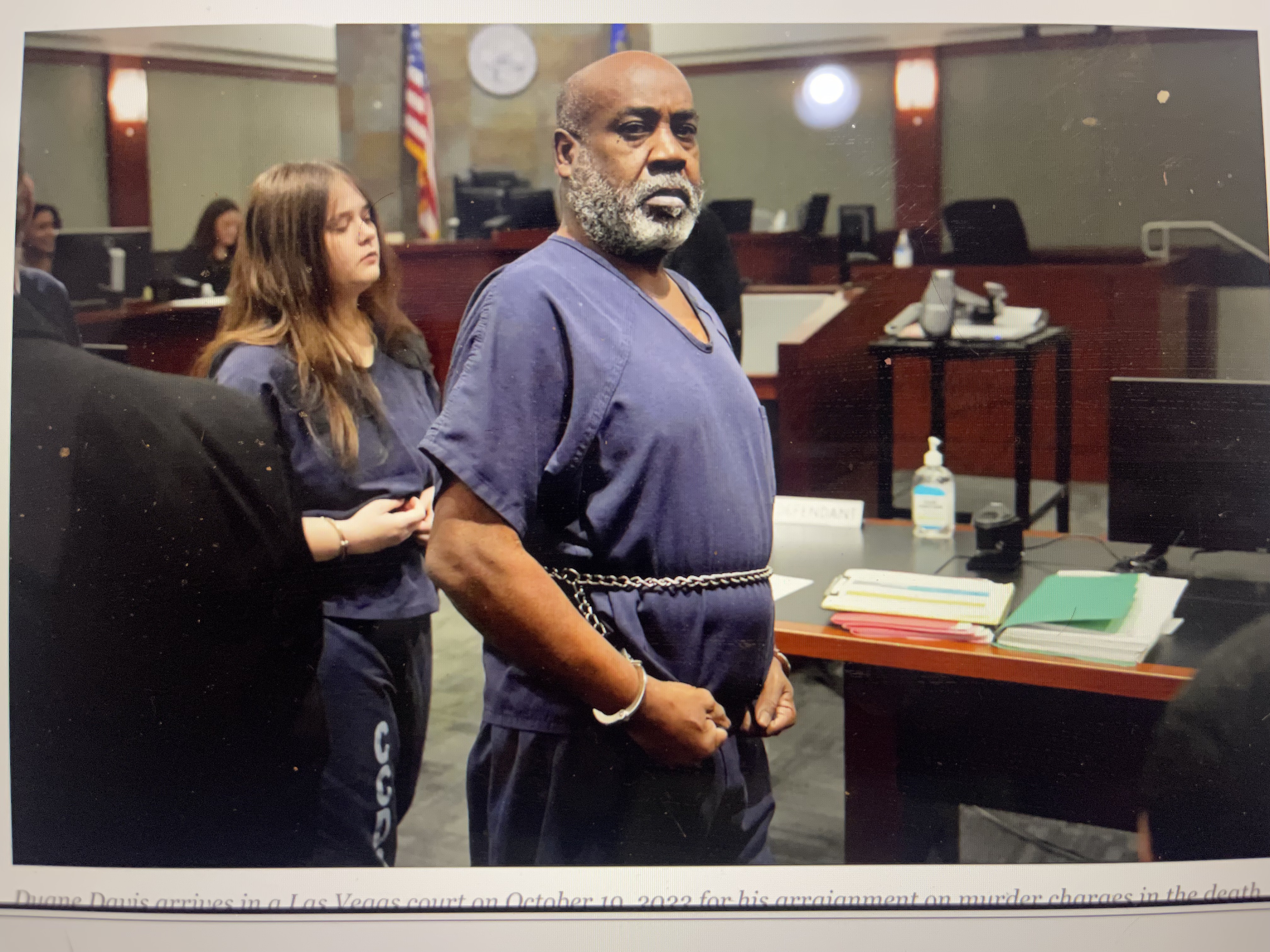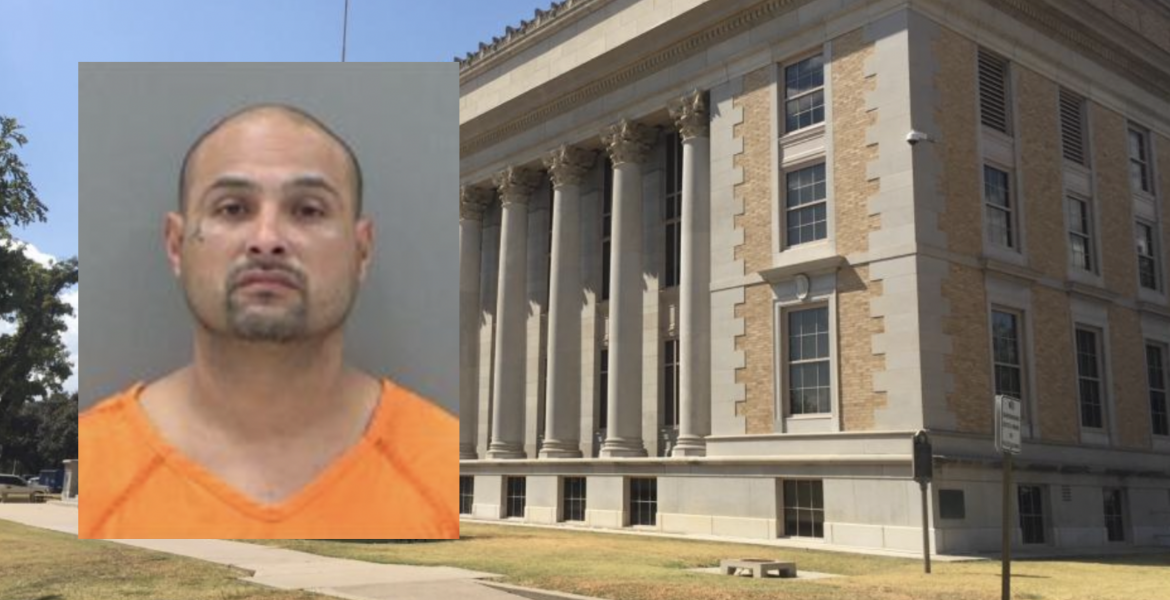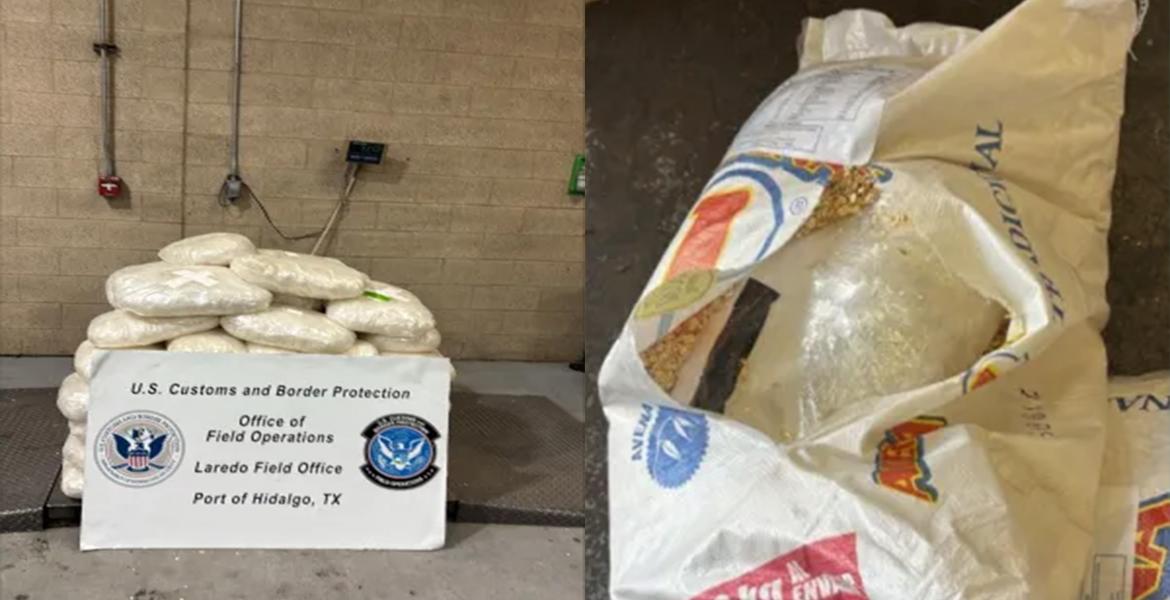LAS VEGAS, NV - Prosecutors in Las Vegas vehemently opposed the release to house arrest of Duane "Keffe D" Davis, a former Los Angeles-area gang leader accused of involvement in the 1996 killing of hip-hop icon Tupac Shakur. Citing extensive and repeated confessions spanning more than a decade, prosecutors argued against Davis' release ahead of his trial set for June.
In a court filing submitted on Thursday, prosecutor Binu Palal highlighted Davis' persistent confessions, labeling them as compelling evidence to reject his request for release on bail not exceeding $100,000. Palal emphasized Davis' repeated assertions of responsibility for Shakur's murder, stating, "Defendant was the shot-caller," and urging the court to consider his prior admissions.
Moreover, prosecutors cited more than 160 pages of written transcripts and supplementary evidence on DVD, underscoring the weight of Davis' accounts in implicating himself in the crime.
Davis, aged 60, faces health concerns, including a history of colon cancer in remission, according to his court-appointed attorneys, Robert Arroyo and Charles Cano. The defense argued that inadequate medical attention and poor conditions in jail jeopardize Davis' health, asserting that he poses no flight risk or danger to the community.

tupackiller.jpeg
(Credit: SA Live screen shot)
However, the prosecution dismissed Davis' claims of immunity, stressing his continuous self-incrimination across various platforms, including interviews, a book published in 2019, and interactions with law enforcement agencies. Despite Davis' assertions that his accounts were for entertainment and monetary gain, prosecutors argued that his admissions held weight in determining his culpability.
The ongoing legal battle traces back to the fatal drive-by shooting of Shakur in Las Vegas in 1996, where Davis allegedly played a role. Despite Davis' claim of immunity from a 2008 FBI and LAPD agreement, prosecutors maintain his culpability in orchestrating the murder.
Notably, Davis is the lone surviving occupant from the vehicle involved in the shooting, and prosecutors underscored his lack of caution or remorse in incriminating himself during various instances over the years.
The legal battle surrounding Duane "Keffe D" Davis's involvement in the 1996 murder of Tupac Shakur intensifies as prosecutors cite a decade-long trail of confessions to deny his bid for house arrest. With prosecutors emphasizing Davis' repeated self-incrimination, the ongoing court proceedings continue to shed light on a case that has remained unresolved for decades.
Subscribe to the LIVE! Daily
Required






Post a comment to this article here: